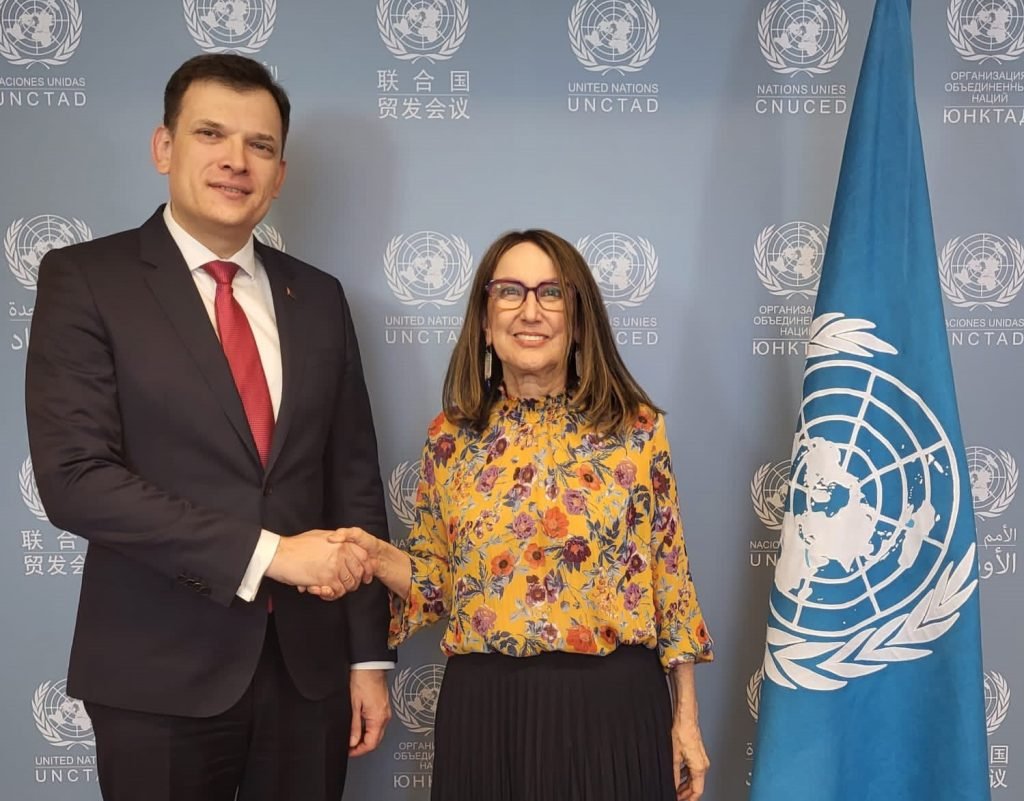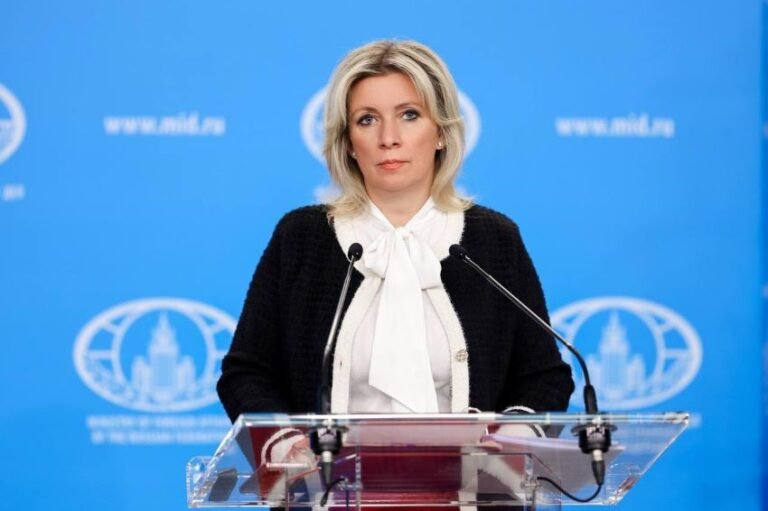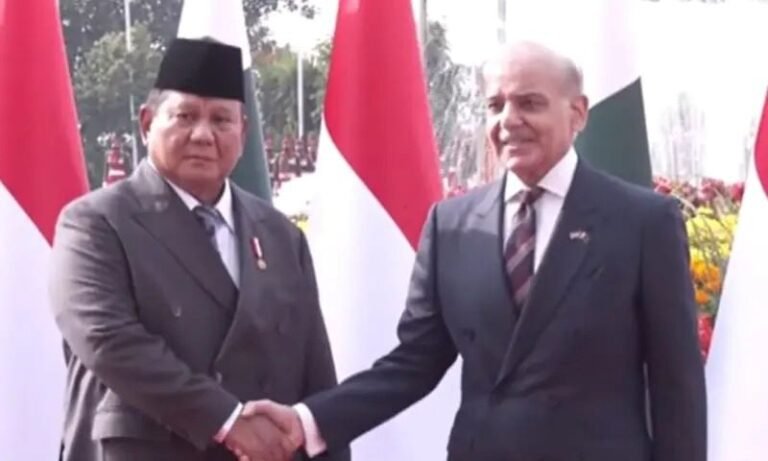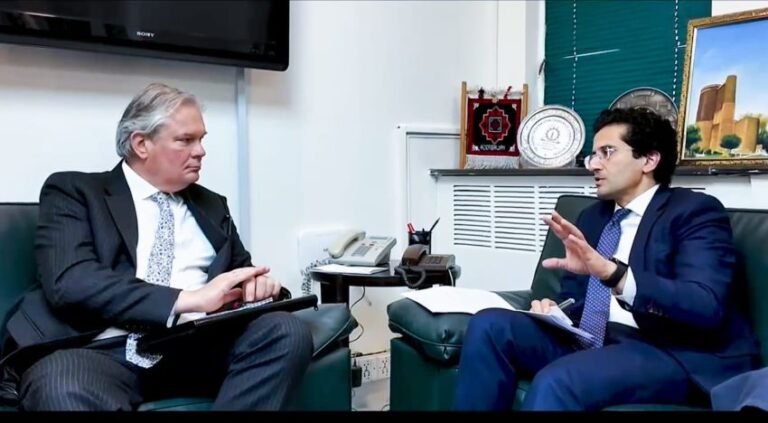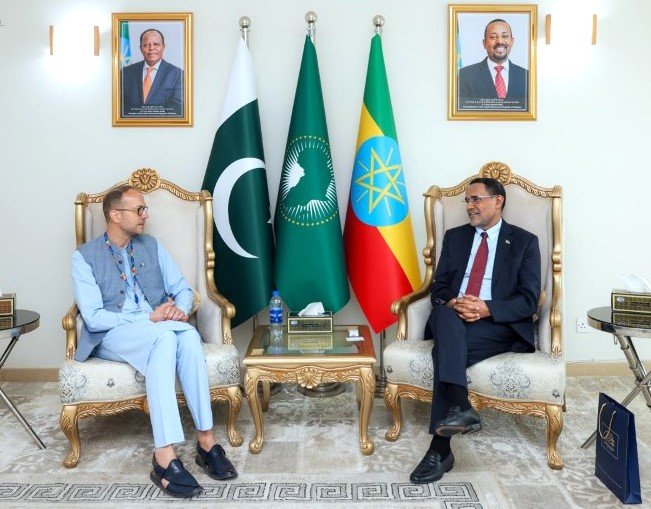Geneva, 2 March 2023 (TDI): Deputy Foreign Minister of Belarus, Yury Ambrazevich met with United Nations Conference on Trade and Development (UNCTAD) Secretary-General, Rebeca Grynspan.
#Belarus stands ready to tackle global food crisis by ensuring access of Belarusian fertilizers to world market, Deputy Foreign Minister @yambrazevich said at his meeting with UNCTAD's Secretary-General @RGrynspan and welcomed @UNCTAD efforts in this direction pic.twitter.com/R6Q221hAoX
— Belarus UN Geneva (@BelarusUNOG) March 1, 2023
During the conversation, Ambrazevich said that Belarus is dedicated to helping to ease the ongoing global food crisis by granting access to the worldwide market for its high-quality fertilizers.
Deputy Foreign Minister emphasized Belarus’s desire to collaborate with the organization and other international partners to develop the global fertilizers trade.
He highlighted that the Belarusian government is committed to providing all assistance needed to ensure the country’s fertilizer industry abides by international norms and regulations.
While the Secretary-General of UNCTAD appreciated Belarus’s commitment to encouraging international trade and investment, particularly in fertilizer.
She stressed that the organization is devoted to assisting nations like Belarus to expand their exports and contribute to global economic growth.
UNCTAD’s Secretary-General pledged to support Belarus and other nations in fostering international trade and investment to achieve global economic growth.
Also Read: WEF lauds Algeria, Morocco for tackling Food Crisis
Fertilizer production is primarily done in Belarus. Its products have received international recognition for their exceptional quality and effectiveness.
Belarus’s initiatives to enhance the export of its fertilizers are anticipated to substantially contribute to the current international efforts to address the food crisis.
Farmers globally can boost crop yields by ensuring access to high-quality fertilizers, contributing to the production of enough food to meet rising demand.
The world is currently experiencing a severe food crisis that affects millions of people worldwide. Climate change, conflicts, and economic insecurity are among the reasons that have contributed to the issue.
Climate change has reduced agricultural productivity in many parts of the world due to extreme weather events such as floods, droughts, and heat waves.
It has decreased food output and raised prices, making it difficult for people to obtain inexpensive and healthy food.
Wars and political turmoil have further exacerbated the food crisis, particularly in Africa, Asia, and the Middle East. Conflicts in these regions have interrupted food production and delivery, resulting in food scarcity and hunger.
In addition, economic instability has made the food problem worse, particularly in emerging nations. Job losses and economic downturns due to the COVID-19 pandemic have made it harder for people to afford food.
The current food crisis is a complicated issue that demands an immediate response from governments, humanitarian organizations, and other stakeholders.
There is a need to develop sustainable agriculture methods, promote peace and stability in conflict-affected areas, and assist vulnerable communities economically.
Farmers must have access to fertilizers to maximize crop yields and contribute to meeting the world’s expanding food demand. Inaction will worsen hunger, malnutrition, and social instability.
A student of International Relations interested in National Security strategies, with a good focus on Geo-Politics, Foreign Policy, and Public & Cultural Diplomacy.
- This author does not have any more posts.

